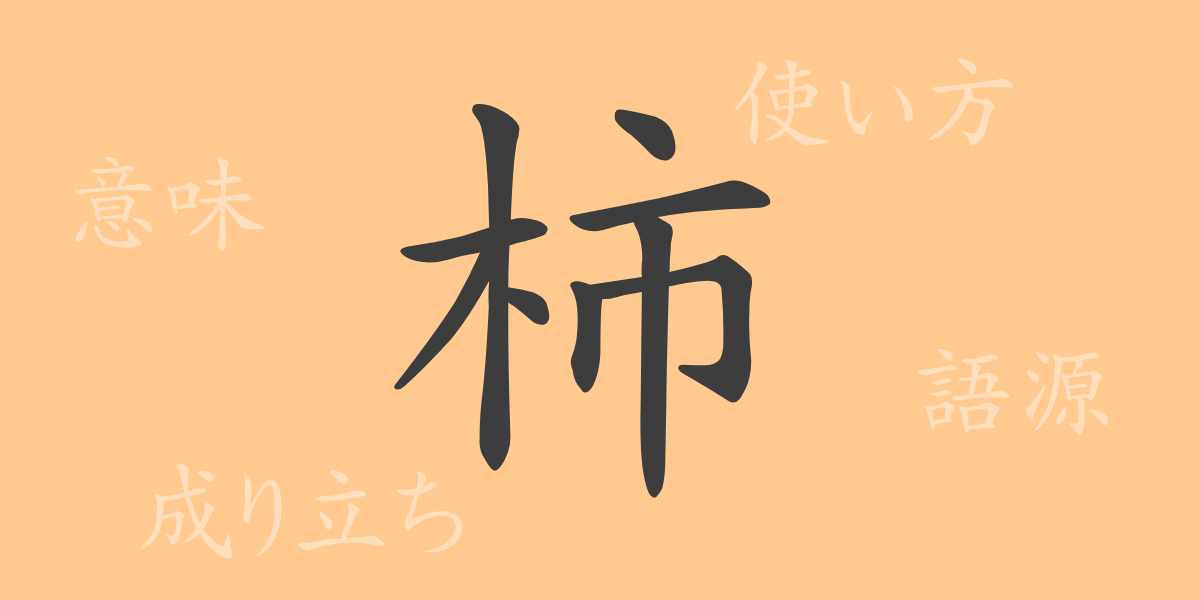As autumn deepens, one fruit that adorns the Japanese dining table is the persimmon (柿[kaki]). This fruit has captivated many with its unique sweetness and texture. However, knowledge about persimmons isn’t limited to their taste. In this article, we’ll delve into the origins of the word persimmon, its meanings, usage, and even its role in Japanese culture. From the characteristics of the kanji for persimmon, such as its readings, stroke count, and radical, to idioms and proverbs involving persimmons, we’ll cover all the information related to this fruit.
The Origin of Persimmon (語源[Go-gen])
The origin of the word persimmon traces back to ancient China. The Japanese term “柿” is believed to have been adopted from the Chinese word “柿子 (しーず[shi-zi])” in both sound and meaning. Additionally, the persimmon tree has been native to Japan for a long time, and the kanji “柿” is thought to be formed by combining “木” (tree) with “可” (possible), which conveys meanings such as “good” or “beautiful,” reflecting the beautiful fruit borne by the persimmon tree.
The Meaning and Usage of Persimmon
The kanji “柿” specifically refers to the fruit, but it can also imply positive meanings like “good things” or “beauty.” It is primarily used to denote the fruit itself but can also be found in place names and personal names. For example, there are places in Japan called “柿原 (Kakihara)” and “柿沢 (Kakisawa),” which suggest regions rich in nature.
Readings, Stroke Count, and Radical of Persimmon
Let’s look at the characteristics of the kanji “柿.”
- Readings: The onyomi (Chinese reading) is “し (Shi),” and the kunyomi (Japanese reading) is “かき (kaki).”
- Stroke Count: It has a total of 9 strokes.
- Radical: The radical is “木 (ki),” which is often used as the radical for kanji related to plants.
Idioms, Phrases, and Proverbs Using Persimmon and Their Meanings
Persimmon-related expressions are deeply ingrained in the Japanese language. Here are some idioms, phrases, and proverbs.
- 柿の種 (kaki- no- tane) – This phrase is used to describe something small and insignificant.
- 柿が落ちる (kak-i ga -ochiru) – It signifies that something has come to fruition or that an unexpected stroke of luck has occurred.
- 柿右衛門 (Kakiemon) – The name of a famous potter, known worldwide for the vividly colored Kakiemon porcelain.
These expressions show that persimmons are a familiar fruit to the Japanese, naturally used in everyday life.
Conclusion on Persimmon
Exploring the charm of the kanji “柿,” we find that it transcends mere fruit to encompass a rich cultural background. Persimmons, long cherished in Japan, are deeply rooted not only in their unique flavor but also in language and culture. It is our hope that through this article, you have come to understand the multifaceted meanings and values of persimmons. Let us continue to cherish the taste of autumn and the kanji “柿” in our lives.

























